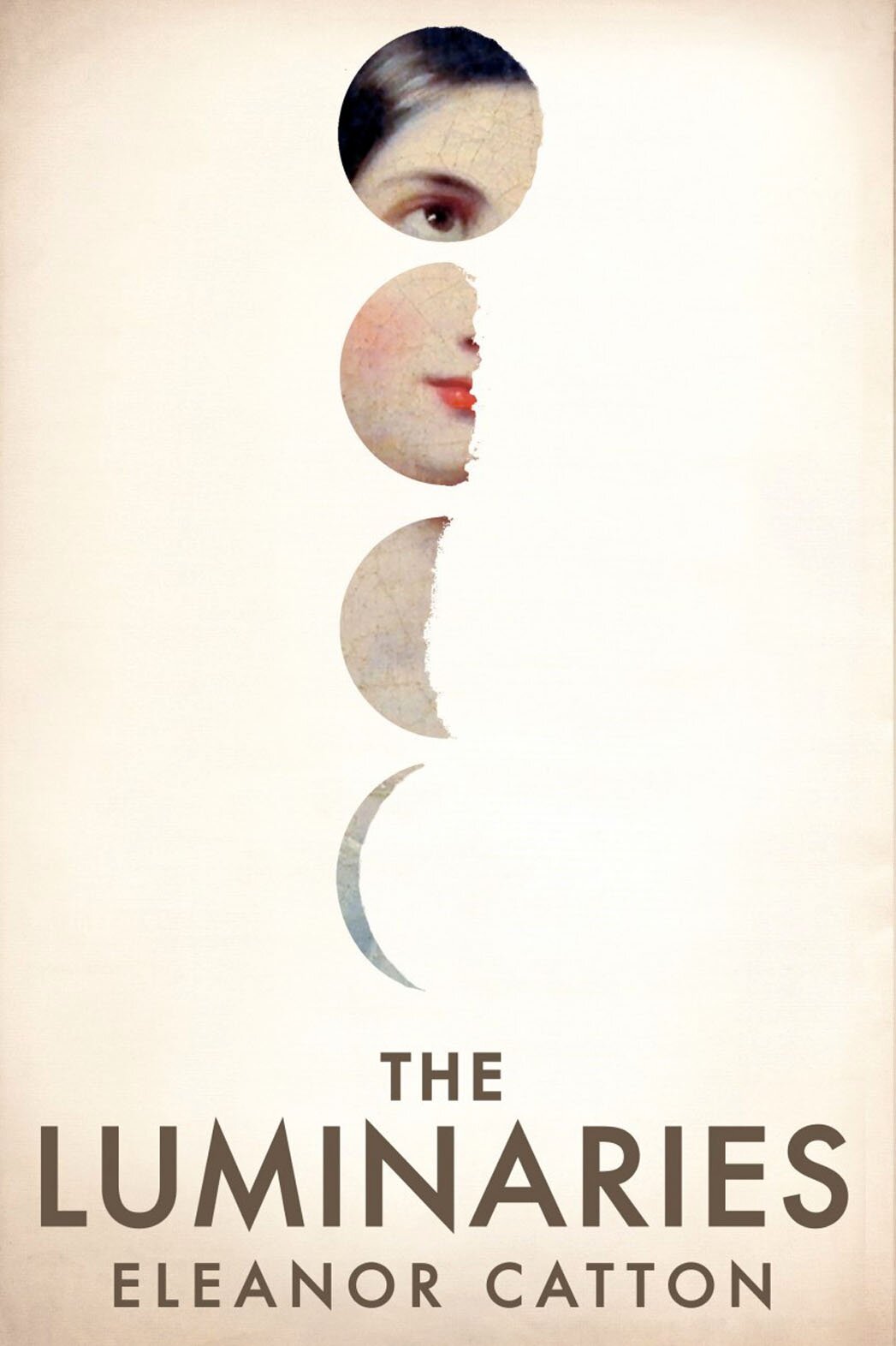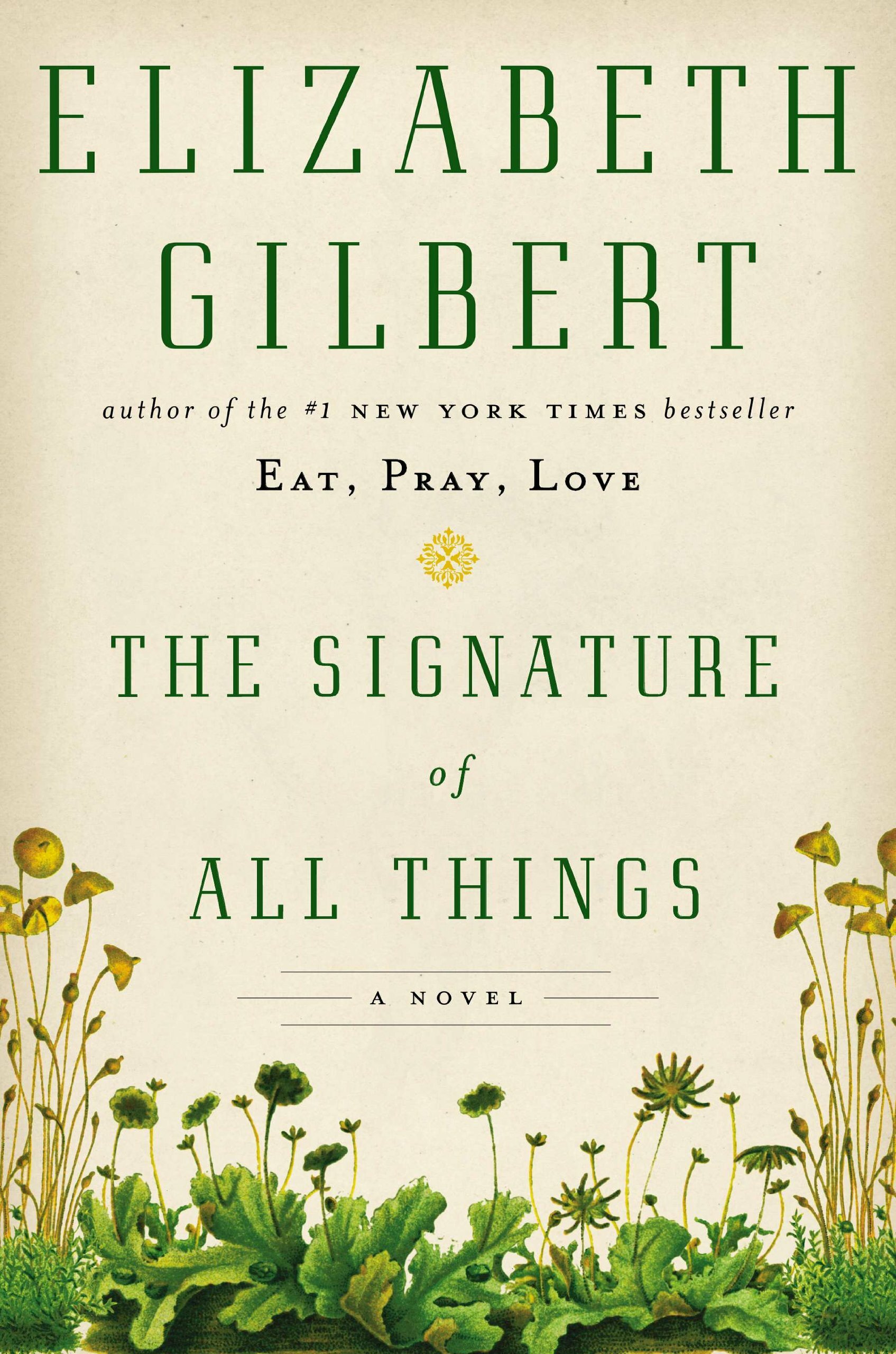

I don’t do enough reading reports/book reviews as you’d think. Sometimes I’m reading a book because I’m “digging,” i.e. reading the book to extract material to use in a particular project. And so my literary analysis lens is turned off. But some books — like The Luminaries and The Signature of All Things — I read for whimsy, curiosity and pure pleasure, and are compelling enough for me to sit down and outline my response to them in some way. I actually enjoyed both, and thought they made for interesting companions — though clearly I loved one over the other. But if you’re looking for quasi 19th-century literature, this is your entry…
Eleanor Catton, The Luminaries
If there’s ever one literary stunt I’d be inclined to, it would be reading all the Booker Prize winners ever. I’m not sure why — maybe because I’ve inadvertently read a lot of Booker Prize winners and enjoyed many of them. Maybe it’s an extension of my latent Anglophilia, I don’t know. It just seems like a “thing” I’d do. I’m inclined to look at a book, go “Hey, this was shortlisted for the Booker prize,” and see that as an imprimatur for some kind of quality or taste level.
But for the like of me, I cannot see why The Luminaries won this year’s Booker Prize (especially over Jhumpa Lahiri!) Not that it is a bad book by any means — it is a highly admirable novel, with a complex, narrative structure where intertwined stories fold up and nestle against one another. All of them concern a man’s death, a hoard of treasure and a whore that seems to have inherited it all in some way or another. And the milieu is fascinating — a 1800s mining town in New Zealand — and there’s definitely some beautiful prose. And I am always in favor of authors essentially aping the feel of classic 19th-century novels, with more formal, constructed prose and a certain formality in the structure. (Indeed, with a strong emphasis on structure!) If written in the actual 19th century, The Luminaries would be a kind of adventure yarn you’d read from someone like Jack London, Herman Melville or the like. But it’s written in the 2000s, which means it lacks the buoyancy, verve and genuine bawdy spirit of a true yarn. The narrative and writing is way too controlled to rollick and roll, and the result feels strangely undramatic and much more internal than you’d expect.
That sense of interiority, though, doesn’t quite form a bridge to developing an attachment to the story or characters in general. Call me old-fashioned, but I could not fully invest emotionally in any of the novel’s broad cast of characters or the relationships between them. Maybe it’s the result of the novel’s somewhat fussy, complicated structure and broad cast of characters? I was interested enough to want to know what happened and why, which propelled me to finish the book — kind of an accomplishment, especially since I’ve vowed not to finish books out of a sense of obligation anymore. But after I finished this 800-plus-pager, I shut the covers and felt just a pale shadow of poignancy, which faded into the everyday business of the usual day.
I felt oddly disappointed in my own reaction. But when I thought about it again, I finally put my finger on what the act of reading books means to me now, and why The Luminaries failed to fulfill it. As I get older, I have somewhat returned to the old relationship I once had with books and novels and stories — I like to feel as if they are companions in my life. I don’t expect to “relate” to them or even “like” them, but I want to feel as if we’ve taken a journey together, or had a conversation that in some small way altered my way of seeing, understanding and feeling, if only for some time. And though it concerns journeys and discoveries, I did not feel that journey or sense of uncovering a new land or idea with Catton’s novel. That made me a little sad, to have spent so much time with it and to feel so little resonance at the end. The Luminaries is a bit like a monument — you can look up and admire it and understand its importance and accomplishment on a cerebral level, but it doesn’t quite feel as if you’ve lived through or with it, and in that strange way, ultimately disappoints.
Elizabeth Gilbert, The Signature of All Things
I read Eat, Pray, Love like everyone on the planet who ever had to buy a book at an airport bookstore because their freaking e-reader ran out of power on an unexpectedly long layover. (Okay, maybe that was just me?) We all know what it is about, right? Middle-aged lady in the middle of a midlife crisis and divorce travels the world, finds her center and then finds true love amid exotic locales.
I don’t begrudge anyone their personal journey towards love and enlightenment, but I sort of found the “voice” of the book annoying, a bit like being trapped on a long flight next to an overly chatty lady who was trying her hardest to be super-interesting and deep and wanted you to like her really, really badly. Which is sort of odd, because in the interviews I’ve read and seen with Liz Gilbert — including her great TED talk — she seems like a lovely, smart, amiable person that I’d love to chat with. But chalk it up to one of the strange mysteries of life: I read Eat, Pray, Love, enjoyed it in several moments and just sort of had to take a break from it a lot because I felt so bombarded.
I was wary of reading her next book, Committed, but the subject of coming to terms with matrimony interested me enough to pick it up. I don’t think it was as personally compelling or alive as Eat, Pray, Love was, but I did come away feeling a kind of a respect for Gilbert’s flinty, feminist intellect. The woman clearly did her research and analysis, and the decision she made at the end was compelling.
With the surprising reaction I had towards Committed, I had hope for Gilbert’s newest book, The Signature of All Things. For one thing, it is a novel, and her personal “voice” of her memoirs would not be an obstacle. And it centers around botanists, which I have a strange affection for. And it is also a bit of an impersonation of a 19th century novel, which as you read earlier I am ALL for, since all my favorite books are basically from the 1800s. (Is this a bit like when all those bands in the early 2000s sounded like Gang of Four? Like a nostalgia for an old sound, combined with a longing for new material?) And I’m writing here to tell you: I unabashedly, passionately loved The Signature of All Things. I sometimes hate when people use this word, but it was fabulous.
It’s basically the life story of a central character, Alma Whitaker, born in 1800 in Philadelphia to a wealthy, self-made English tycoon and a stern, flinty Dutch mother. Alma is “homely,” ungainly and awkward, but she is also radiantly curious and brilliant, and devotes her considerable intellectual powers to the study of botany, then one of the few “polite” sciences women were allowed to access. She’s also a child of her historical period, and her life and development mirror the changing status of women, the rise of science and the general age of discovery in the world.
Alma has her struggles: she grows up with a distant, icy yet beautiful adopted sister, falls in unrequited love, falls in love with someone who seems to reciprocates and then has her heart terribly broken. But the real arc is of a woman deeply engaged with the world, one whose intellectual, sensual and emotional journey propels her to greater communion with the world, with a universe larger and more expansive than she can even comprehend. In this respect, the novel is deeply feminist — it respects the role that vocation and livelihood plays in the lives of women. It is also unabashedly earthy, sensuous and emotionally rich. It manages to combine the sharp intelligence Gilbert displays in her interviews with the same expansive heart and emotional generosity that made Eat, Pray, Love so resonant with so many — and yet completely avoids the sentimentality and schmaltz that made the Eat, Pray, Love movie so annoying. And it’s often stunningly, beautifully written, combining the beautiful formality and rigor of typical 19th century prose with modern sensibilities and frankness, especially towards bodies, sexuality and appetites of the flesh.
The Signature of All Things is not perfect — there are points in the plot that pretty much strain incredulity, as they say. But Alma is a character who feels very much alive, so vital and rich and vivid. I reached the end of the book and felt devastated in the best way: devastated that the book was done and I would no longer spend any time with Alma anymore, devastated that Alma wasn’t real, devastated and shattered to feel as if I’d lived the whole of a lifetime in one reading. Honestly, I shut the book when I was done and just cried. Alma’s trajectory offers such a rich, important lesson: that deep, passionate curiosity and study of the world, and the role it plays in self-determination and sovereignty, is reward in and of itself, enough to balance the disappointments of love and compromises of life. Signature isn’t perfect, but it’s storytelling at its most alchemical — and pretty much the reason why I read books in the first place.
Like what you just read? Maybe you'll like my book as well
All Things Glorious and True: Love Letters to Pop Culture, New York, Fashion and Other Objects of Affection is a collection of essays exploring how my crushes on music, dive bars, books, outfits and so much else gave me a braver soul, more open heart and even love. All Things is like a great, stylish mixtape: surprising, kind of punky, fun and often heartfelt.
---->
Tags: books, Eleanor Catton, Elizabeth Gilbert, reading, The Luminaries, The Signature of All Things

